 87% off ends soon!
87% off ends soon!  87% off ends soon!
87% off ends soon! Digital marketing data and insights from over 1,000 small businesses and experts.

If there’s one constant in life, it’s change.
It’s true in business, too.
We learn new ways to communicate as technology advances. We buy and sell online. We educate ourselves and learn from simple Google searches.
Some can even run a business entirely from a laptop.
Because of this transformation, digital marketing has gone from a ‘nice to have’ to a ‘must have’ for small businesses and entrepreneurs looking to create the business of their dreams.
That’s why we put together this handy guide. We wanted to shed light on the opportunities and challenges facing small businesses and entrepreneurs in 2021. We wanted to understand how they’re using (and seeing success with) digital marketing — and show you how you can do it, too.
So, we ran a survey and collected insights from over 1,000 entrepreneurs who are using digital marketing to grow their businesses. In this report, we explore which digital marketing channels they’re using to achieve their goals, which are the most effective, and how confident they are with each channel.
We also asked about how COVID-19 impacted their business and whether they changed their marketing efforts as a result.
It’s our hope you can apply the learnings from other successful digital businesses in this report to create or grow the online business you’ve always wanted.

We collected responses from over 1,000 small business owners and entrepreneurs from all over the world serving various industries. Here’s what they told us about themselves.
Over 60% of survey respondents classified themselves as either affiliate marketers, content creators or consultants. However, ecommerce businesses and brick and mortar retail shops were also well represented in the data.
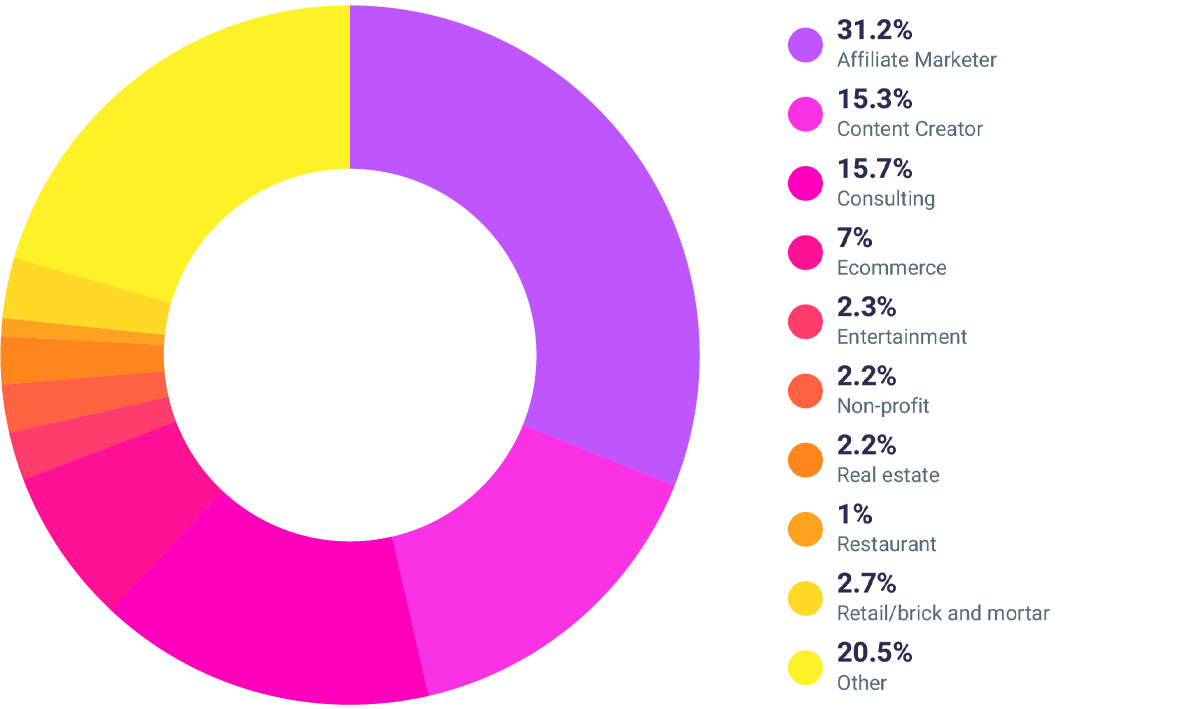
The majority of survey respondents identified as solopreneurs.
In fact, only about 11% of survey respondents have 6 or more employees.
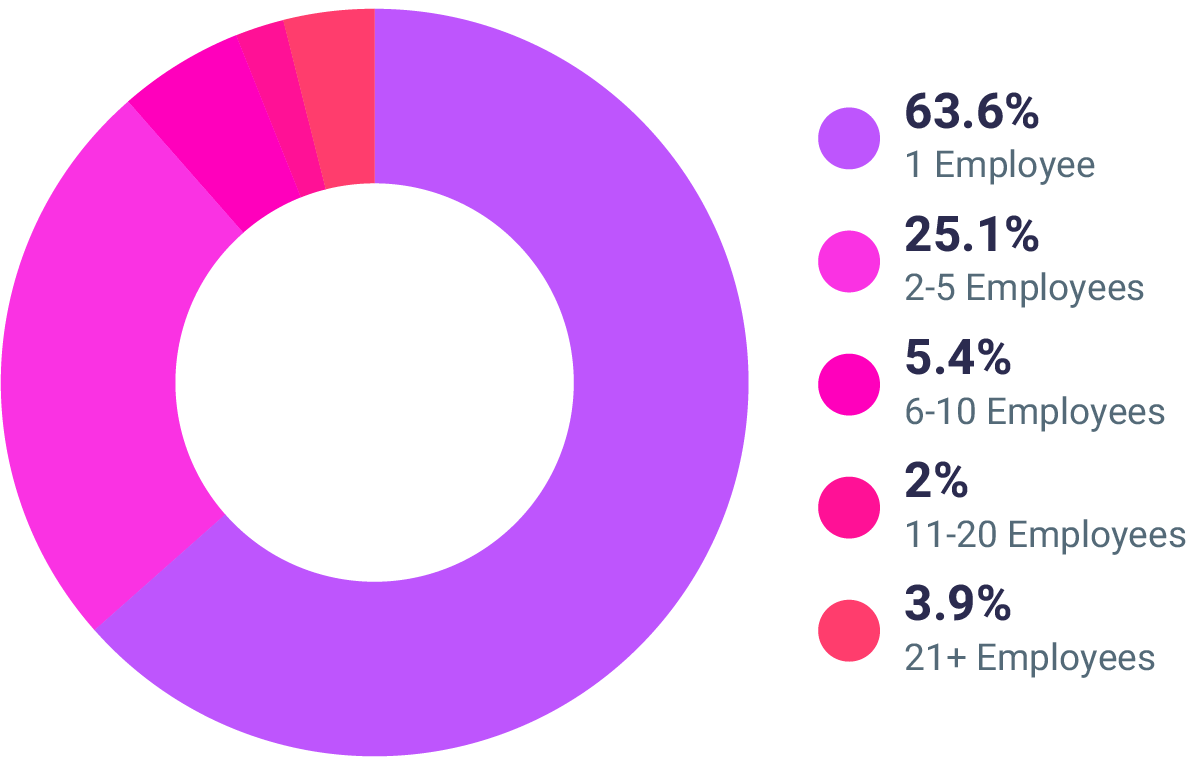
Our survey respondents are located all over the world, but the country with the highest representation in this research was the United States.
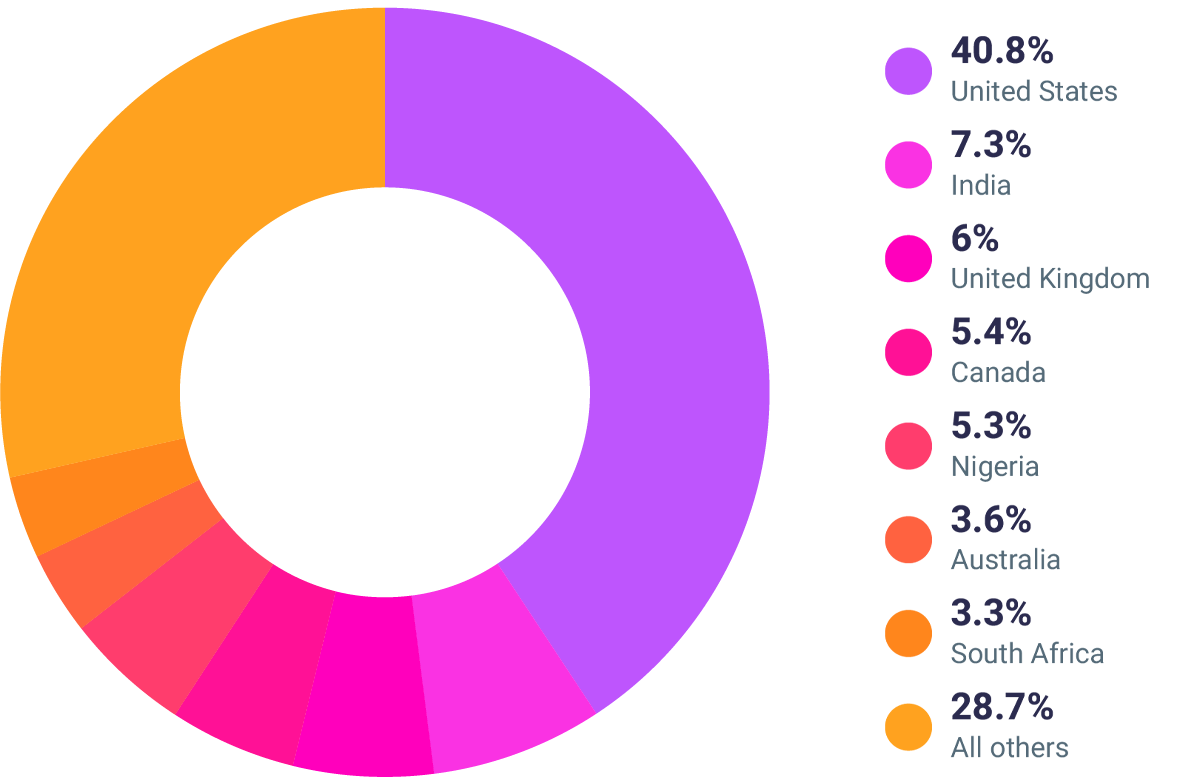

Every entrepreneur has a different vision for their business in the long run. However, many have similar short-term goals and objectives.
To understand what our survey respondents hope to achieve in 2021, we asked them to share their primary business goal, marketing goal, and expected challenges this year.
Not surprisingly, a large majority of small businesses and entrepreneurs want to achieve revenue growth in 2021.
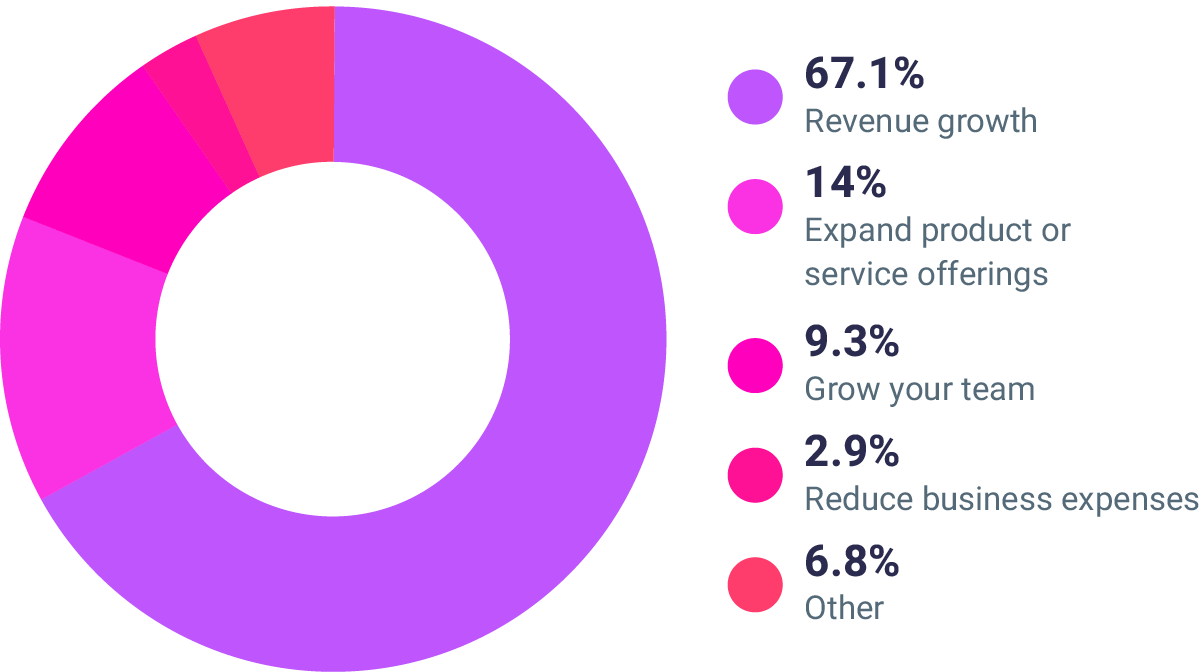
However, their marketing goals were a little more diverse. While 44% of respondents indicated their primary marketing goal is to grow their audience in 2021, nearly 30% responded that increasing web traffic is more important.
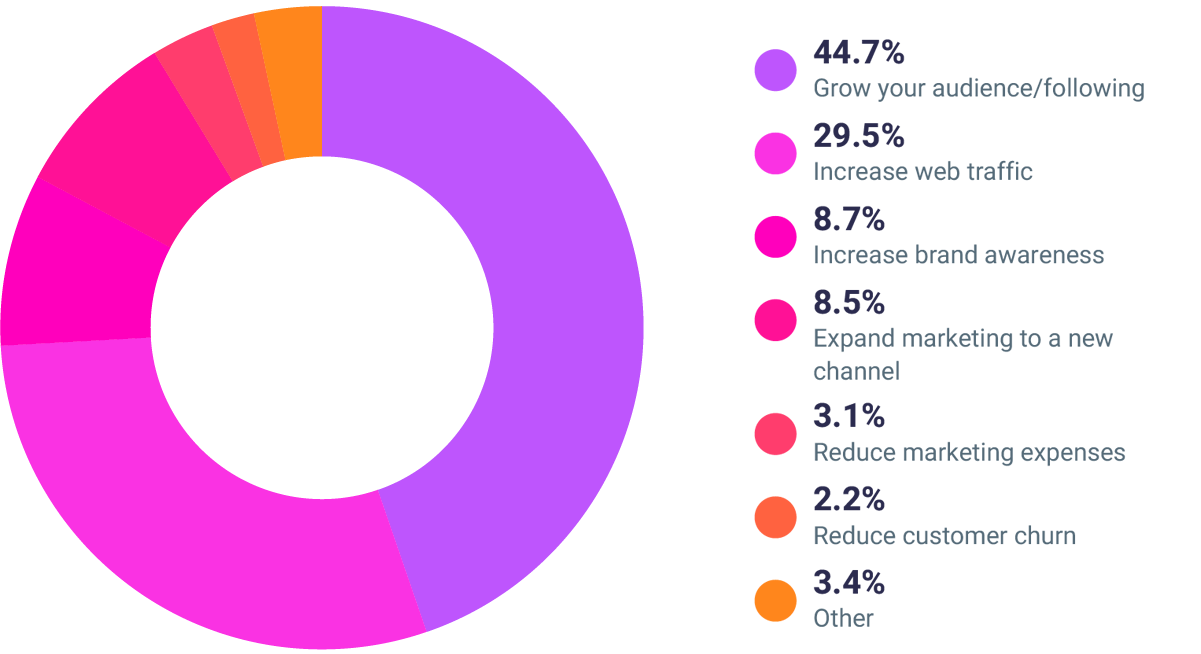
Most small businesses and entrepreneurs indicated that generating leads and converting them into customers are their biggest marketing challenges this year.
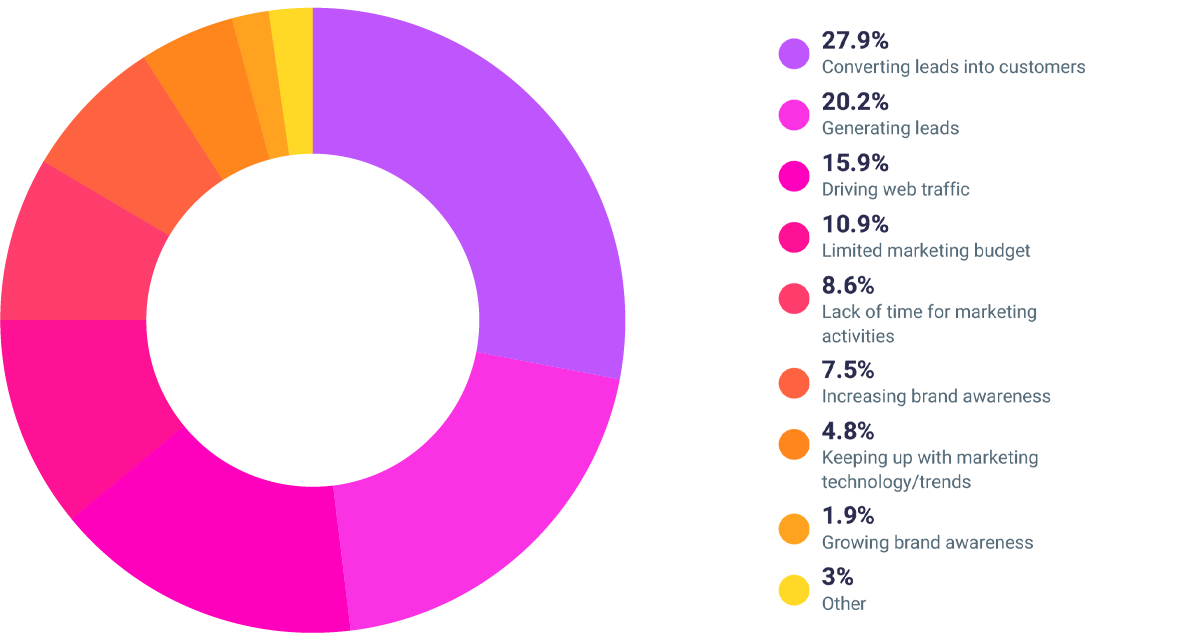
Get 7 fully written-for-you emails proven to create relationships, build trust, and make more sales with email marketing. We’ll teach you everything you need to know to transform prospects into loyal customers in this easy-to-follow 7 step guide.
Get my free guide!
In marketing, it can seem like there’s always some new and exciting tactic that you should be using. It can feel hard to keep up.
But here’s the reality: there’s no such thing as the one, silver-bullet marketing tactic that will make you an overnight success.
And anyone who tells you otherwise is lying — or trying to sell you their ‘secret.’
The most successful entrepreneurs use a variety of marketing tactics to grow their audience, communicate updates, run promotions, and simply have conversations that build genuine connections.
So what strategies do most small businesses and entrepreneurs rely on to build their business? Let’s take a look.
Email marketing and social media are the most commonly used marketing channels among small business owners, with more than 71% of respondents indicating they use these digital strategies.
More than half of respondents indicated that landing pages and content marketing strategies are a part of their larger marketing strategy. Finally, web push notifications and advertising and less commonly used.
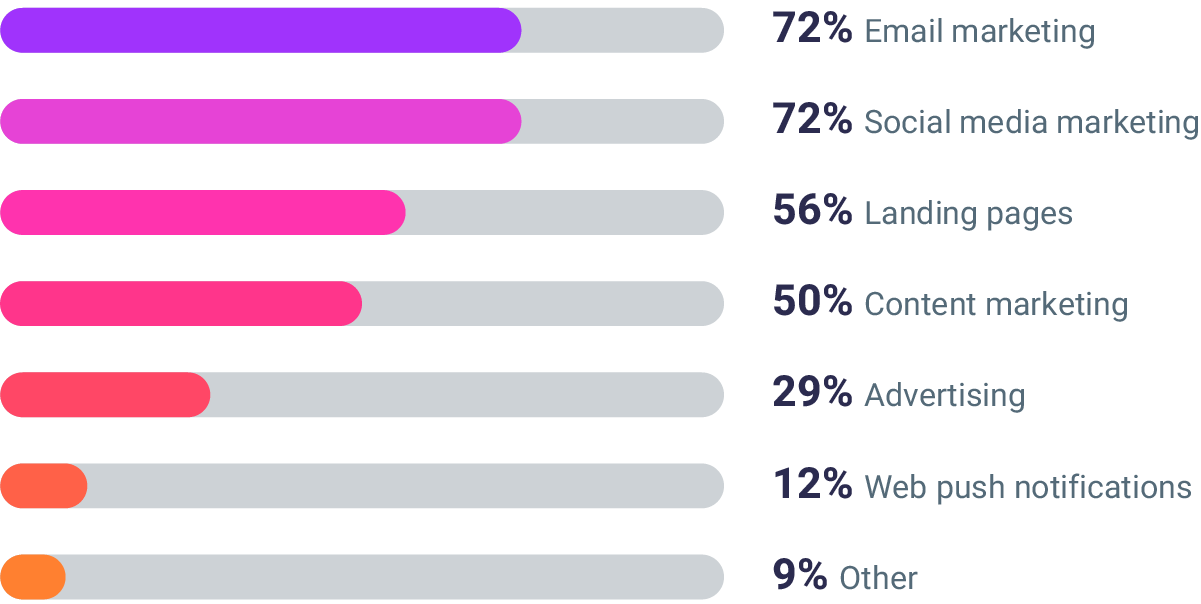
Even though we couldn’t perform business in person over much of the last year, the desire for personal connections by customers didn’t go away—quite the opposite. Businesses that survived found ways to deliver on that expectation in new ways and understand that customers want quick answers, great service, and a consistent experience no matter what method they use to reach out—phone, website chat, text, or email."

Katie Hurst
Director of Brand & Content at Ruby
When asked to indicate their proficiency level across digital marketing channels, the most standout takeaway is that most entrepreneurs have little to no experience with web push notifications.
On the flip side, the digital marketing strategy with the most experts was content marketing. However, most respondents identified as beginners or competent users across the board.
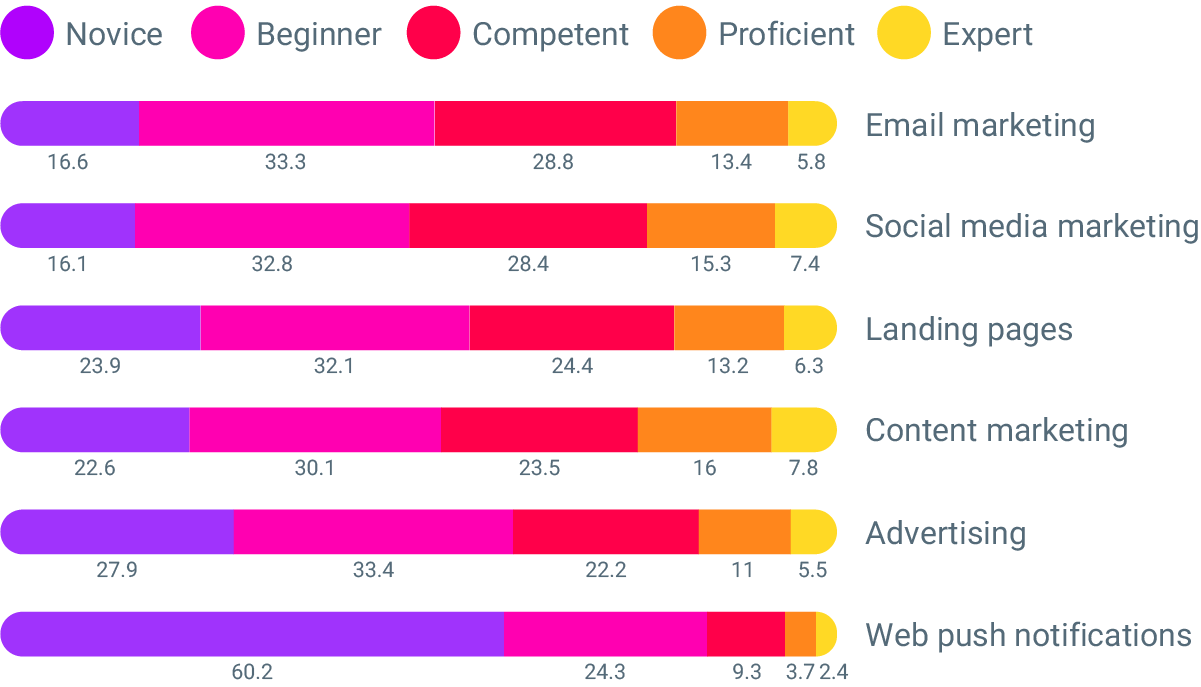
Of those who shared they use email marketing, 94.6% said email marketing is important or very important to their business strategy
However, that doesn’t necessarily mean they have large email lists. Nearly 40% of respondents shared they have less than 100 email subscribers.
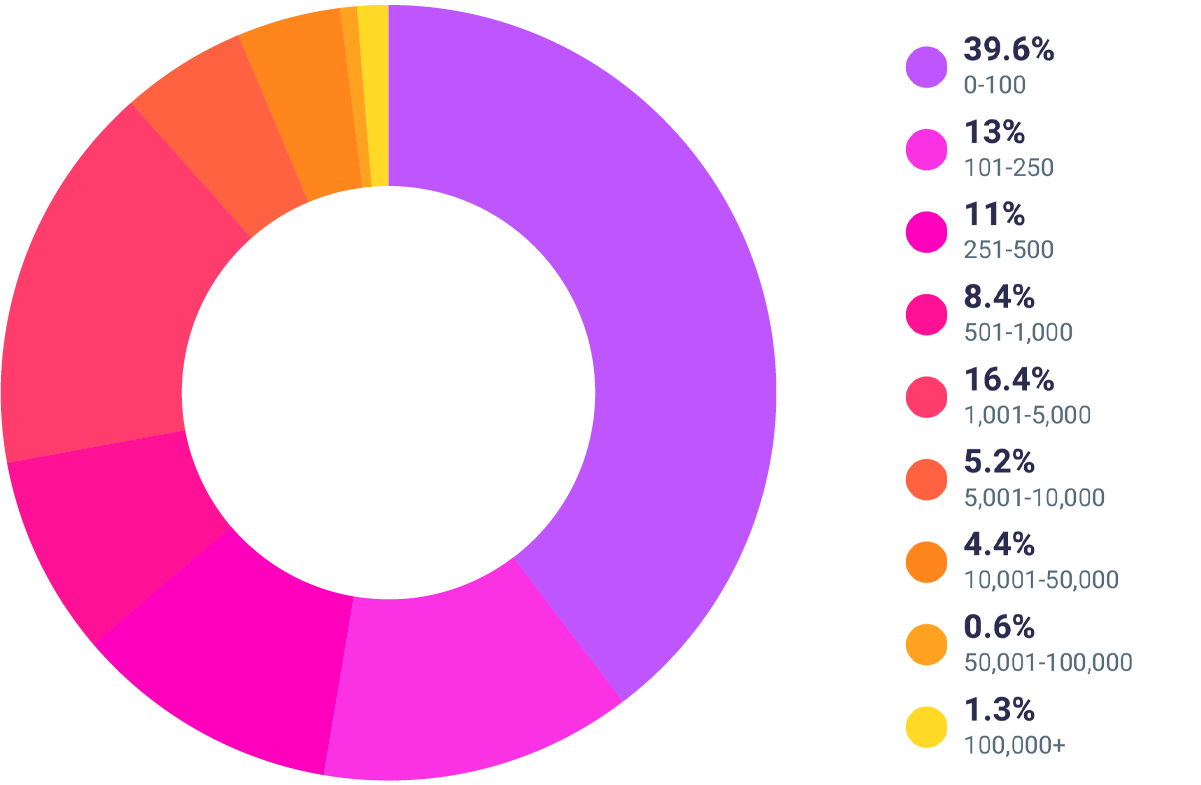
Of those who use landing pages, 90.7% said landing pages are important or very important to their business strategy.
Of those who use advertising, 85.5% said it was important or very important to their business strategy.
While less than 100 survey respondents responded as using web push notifications, of those who did, 69.2% said they were important or very important to their business strategy.
Of those who use content marketing, 93.5% said it was important or very important to their business. The most popular content marketing tactics are as follows:
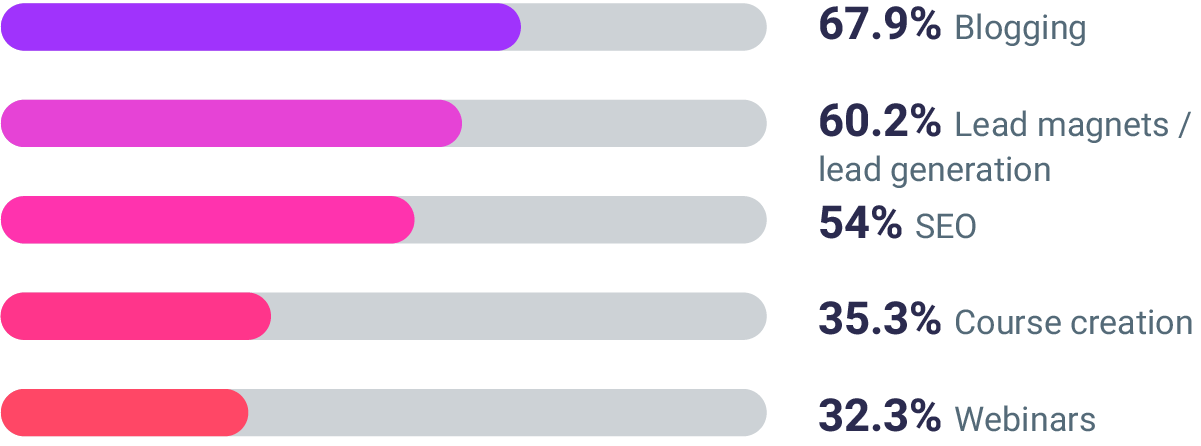
I may be biased, but blogging lays the foundation for any type of successful digital marketing campaign. Having a blog allows you to stake your claim in a particular niche or industry and gives you a direct line of communication with your audience. If you don't like writing, or you're not particularly good at it, then hire someone to do it for you. There are multiple freelancers and content marketing companies available that can fit any budget and can help you create blog content."

Ben Cummings
Blog with Ben
Of those who use social media marketing, 89.6% said it was important or very important to their business. The most popular social media channels are as follows:
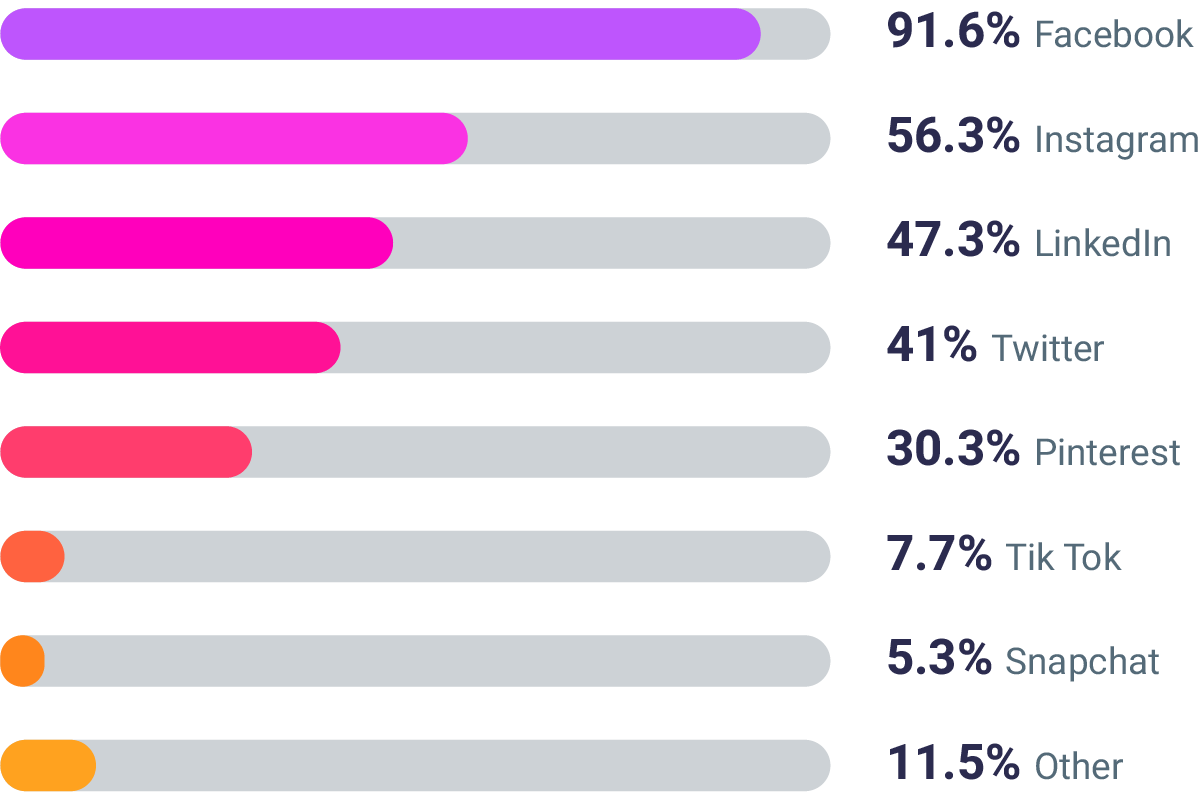
Building an email list should be one of the top priorities for any social marketer. It's an asset of your business, and something that you own - unlike your Facebook page following. I teach the concept of 'content pillars' that will help you stay consistent with your social audience, and share value over email. The concept is basically this: create one piece of "value" each week. This could be a blog post, a public Facebook post, or a public video. It might be about teaching, coaching, or informational value.
That piece of content becomes the pillar for the week. It can be shared to social channels, linked from email, and sliced up into smaller pieces of content such as an Instagram quote, Stories, or an engagement question in a community group. It's an easy way to nurture your email list with value on a regular basis (such as weekly), but not constantly be on the content treadmill of having to come up with new content for all social channels. Create one major piece of 'pillar content' each week, and then share it widely across your socials, including email."

Brenda Ster
Social Media Strategist & Keynote Speaker
The number of social media followers our survey respondents self-reported is widely varied. Nearly 26% of those who use social media have 0-100 followers on their most effective networks, whereas nearly 18% have 1,001-5,000 followers. Similar to email, it seems a smaller audience can still be an effective one.
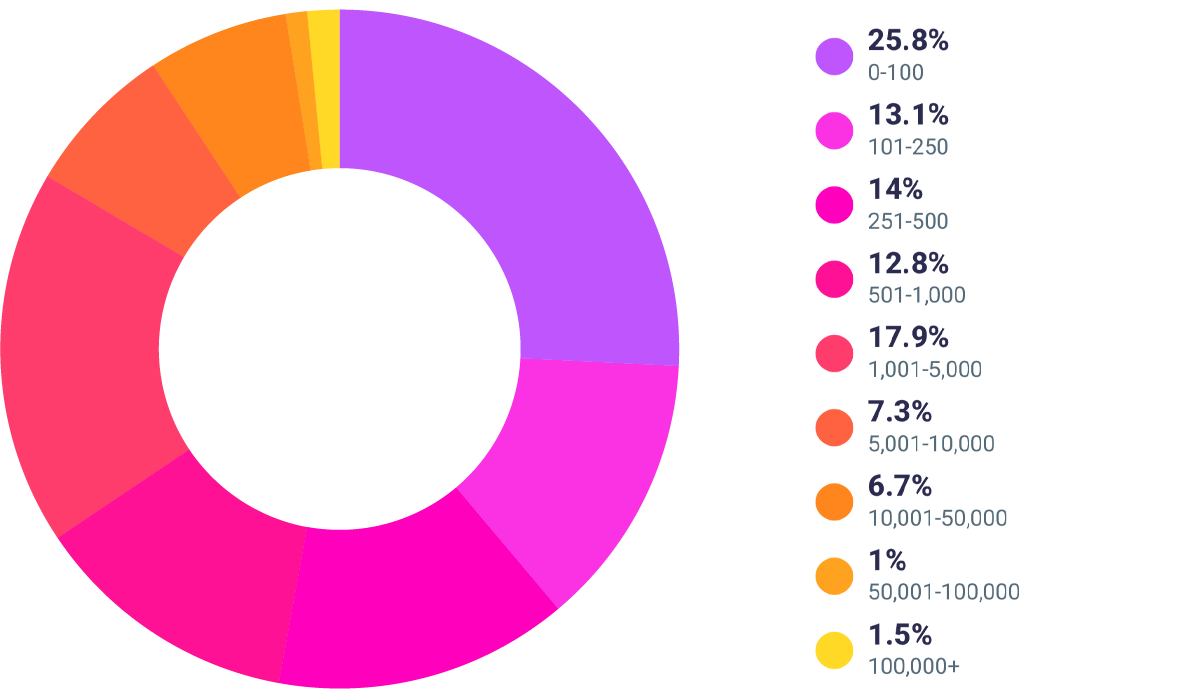
Growing your social following is all about providing value to your audience that helps them solve a problem, or create a connection to you or your community. Small audiences tend to have a higher engagement rate, because the marketer knows their people personally by name, and has a stronger personal connection. This helps create faster 'know, like, and trust' that leads to doing business, and becoming referrable. And the power of a personal referral or endorsement by one of your customers or social followers? That is priceless."

Brenda Ster
Social Media Strategist & Keynote Speaker
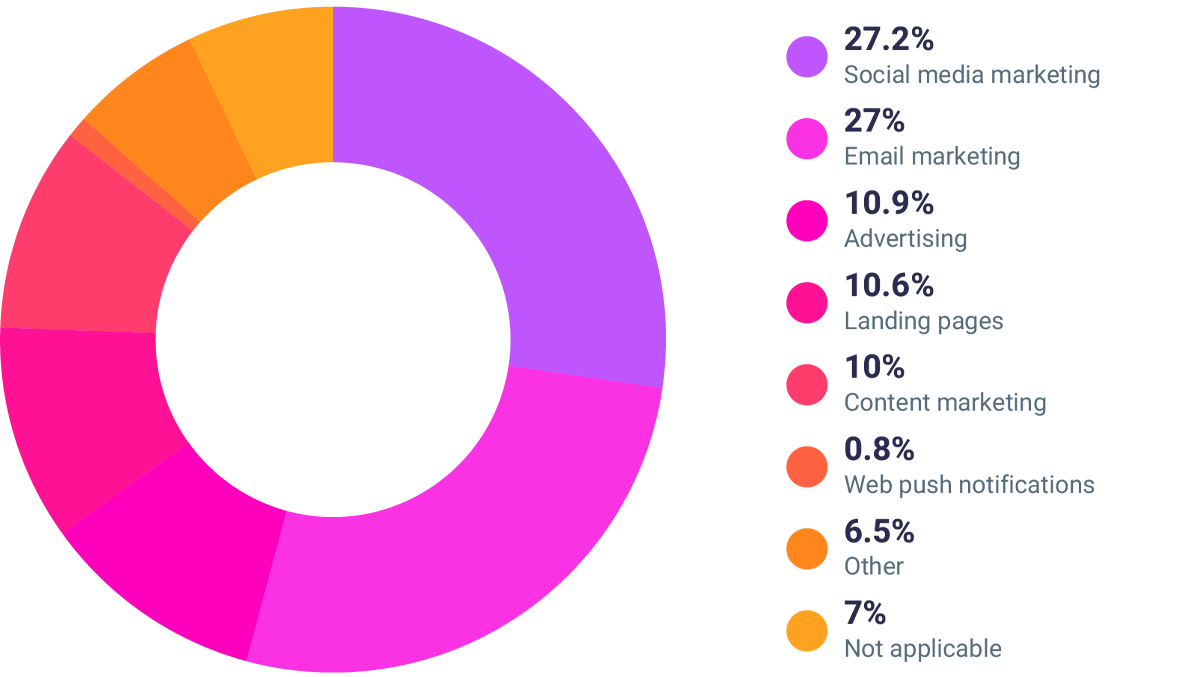
Entrepreneurs and small business owners find email marketing and social media to be the best channels at driving traffic back to their websites.
Why?
Social media lets you build awareness, engage with your followers, and start having conversations. It’s a great place to demonstrate your expertise and share helpful content that solves your ideal audience’s problems.
Meanwhile, email marketing helps you build relationships with those who are already aware of you and your business. They have opted-in to your list because they believe you have something to offer them.
Both are fantastic tools to drive people back to your website. But when used together, social media and email marketing pack a powerful punch.
It’s as easy as downloading this guide! You’ll get step-by-step instructions to drive more email sign ups, 2 fully done-for-you landing page templates, and a 3-part email campaign to delight your new subscribers.
Never fight an algorithm to talk to your audience again!
Get the templates!But when we look at the data by industry, the results look slightly different.
Affiliate marketers find more success driving traffic with email marketing than social media, and tend to use landing pages and advertising regularly as well.
Landing pages can be a powerful and simple way to promote your offers or build your email list since there is only one specific path the reader can take—like join your list. And since the visitor opted in to receiving your information, your message is much more likely to be seen and engaged with—leading to more affiliate sales."

Jena Bagley
Advocate Manager, AWeber
Meanwhile, consultants rely heavily on social media marketing, email marketing and content marketing to drive web traffic.
Content creators, while heavily invested in social media and email marketing, also see the value in content marketing.

Content marketing can positively impact multiple areas of your blog’s business for a long period of time. Theoretically, it can last forever, it never loses value and makes for a perfect long-term investment. With the right content marketing strategy, you can essentially create useful resources that your audience can access for many years to come. At the same time, you’re setting yourself up for a continuous and positive ROI. It’s the gift that keeps on giving!"

Ben Cummings
Blog with Ben
Email marketing received roughly double the number of votes than the next best digital marketing channel when it comes to driving sales.
That’s because email marketing is one of the only digital marketing channels that lets you highly personalize your messages based on what you know about your audience and send relevant messages to relevant groups of people. This process is called email segmentation.
Studies show that 74% of marketers say personalized email messages increase engagement. Plus, personalized emails see 6 times higher transaction rates than non-personalized emails.
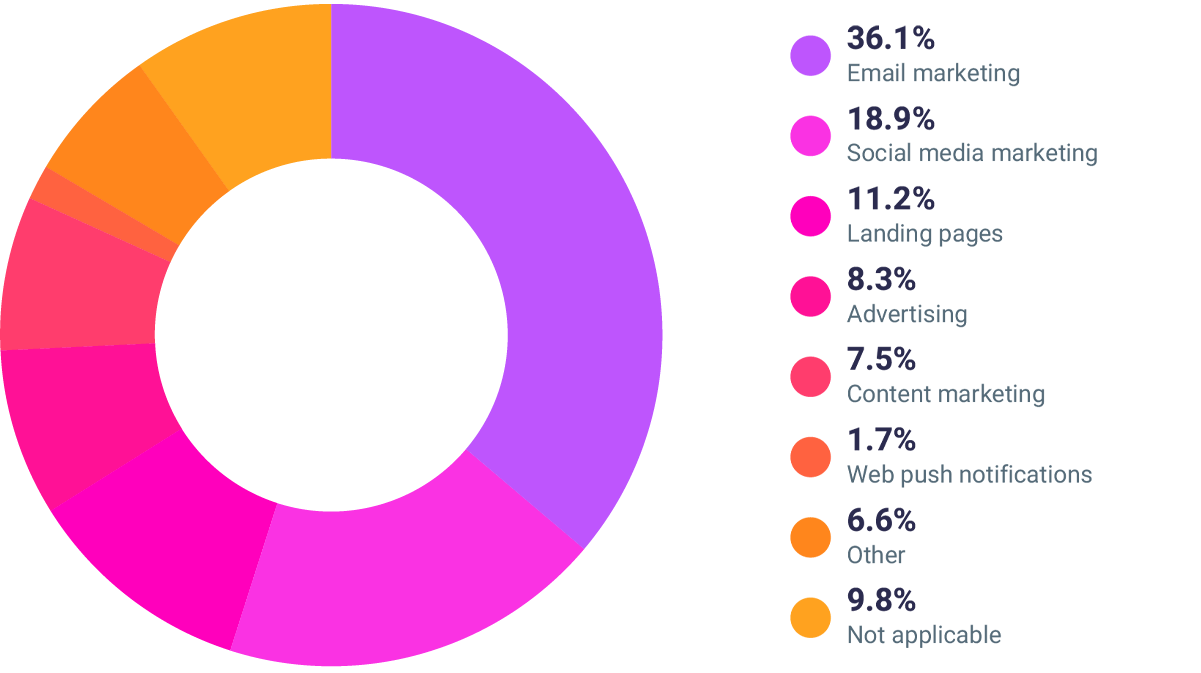
Affiliate marketers have the most success driving sales with email marketing and landing pages, while content creators and consultants place more importance on email marketing and social media.

It’s cheaper to keep an existing customer than to get a new one.
And to keep more customers, entrepreneurs generally agree that email marketing does the best job retaining customers. This is because email marketing lets you send personalized messages, offer helpful content, engage in two-way communication and collect valuable feedback.
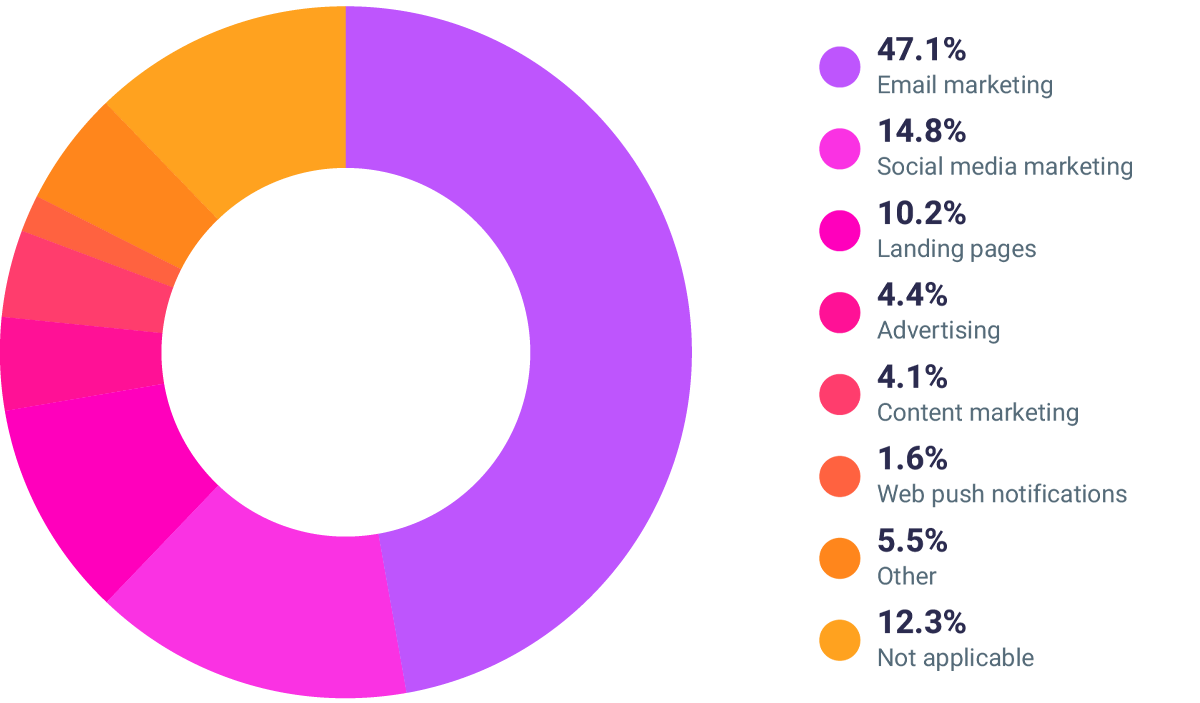
Across the board, small businesses of every industry see email marketing as the key to retaining customers.


The year 2020 changed a lot, about a lot.
The unforeseen challenges posed by the COVID-19 pandemic, quarantine, stay-at-home orders, and business closures around the world meant businesses had to pivot.
But exactly how many businesses felt negatively affected by the pandemic?
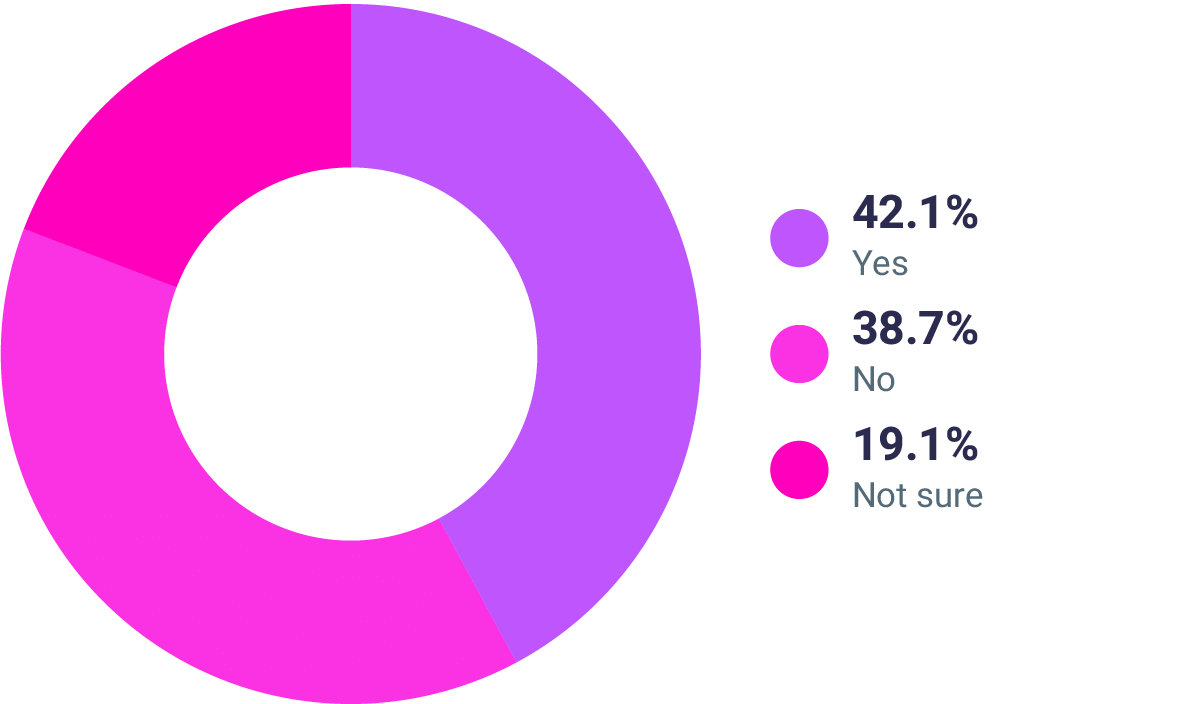
And how many businesses changed their marketing strategy due to the challenges brought on by COVID-19?
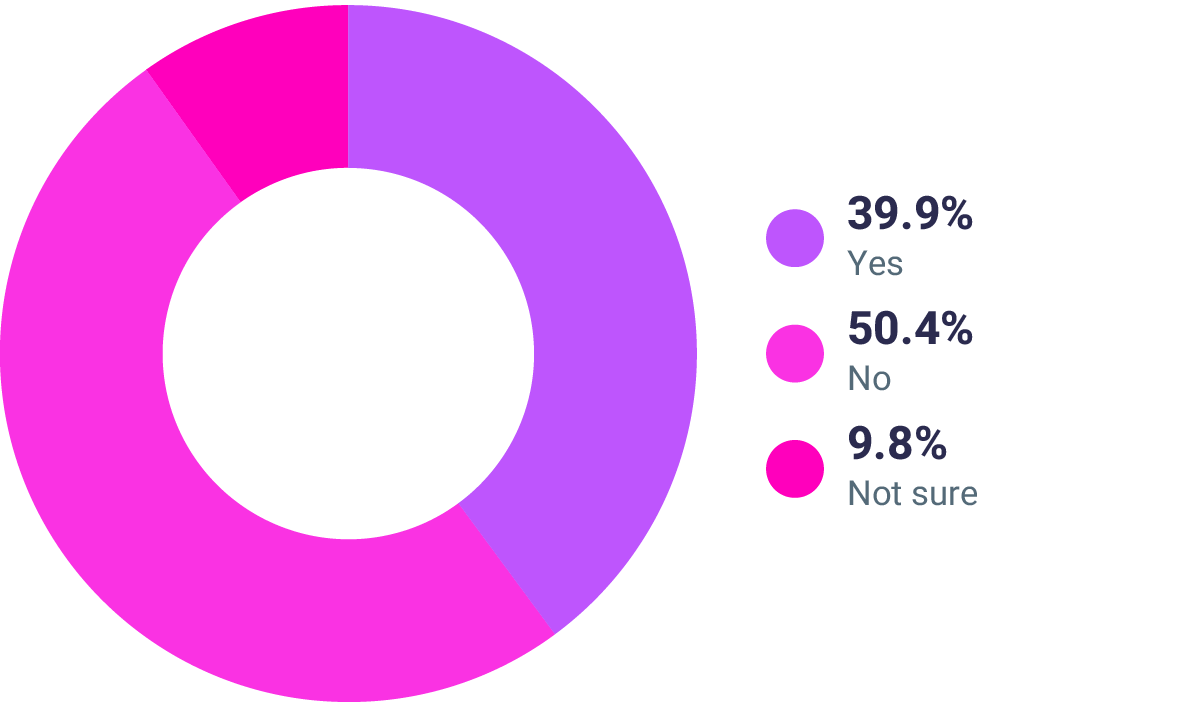
We live in an on-demand economy and customers expect an immediate response no matter the day or time. Your digital marketing strategy is only as good as the infrastructure and staff available to connect with potential and current customers. Being responsive and enabling connections at all parts of the customer journey—from lead capture to building trust to providing ongoing support—is just as important as how you drive people to your business."

Katie Hurst
Director of Brand & Content at Ruby
Which marketing challenges most effectively helped entrepreneurs and small businesses address these challenges?
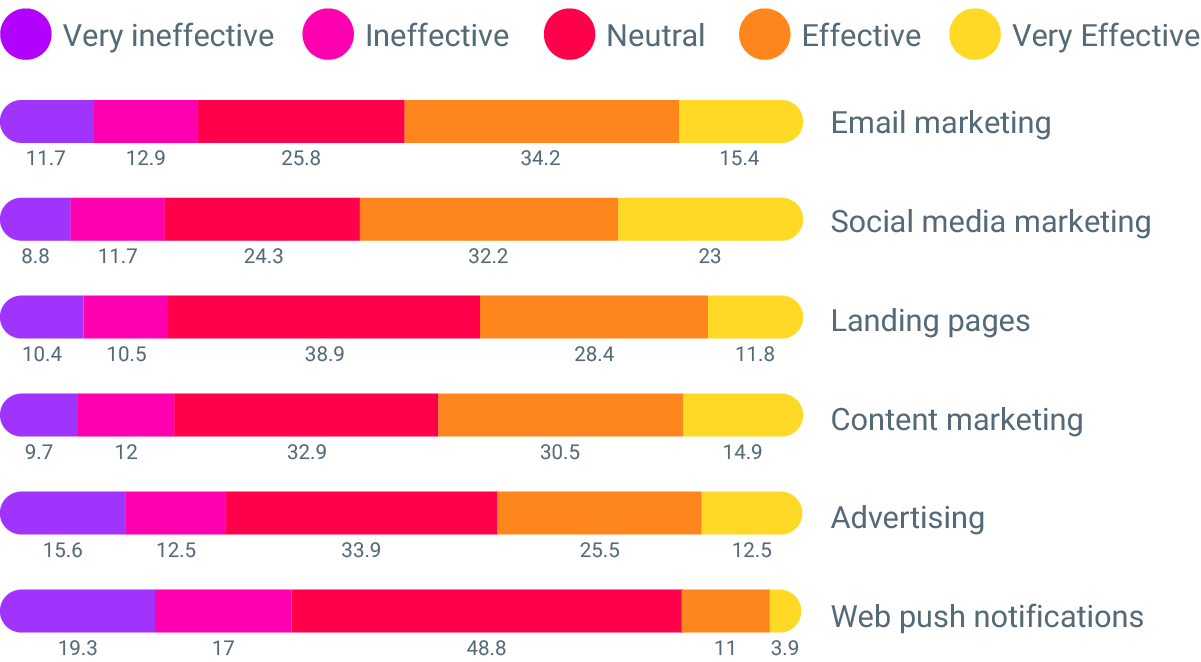
Social media was the most effective channel in helping businesses address challenges brought on by the pandemic.
Customers — and non-customers — tend to turn to social media for immediate updates about business operations. While email marketing is highly effective when communicating with those who are already on your list, social media covers a wider base to give prospects the information they need about your business.
As a result, most people started using social media during the COVID-19 pandemic. A large percentage of businesses also turned to email marketing, content marketing, and landing pages.
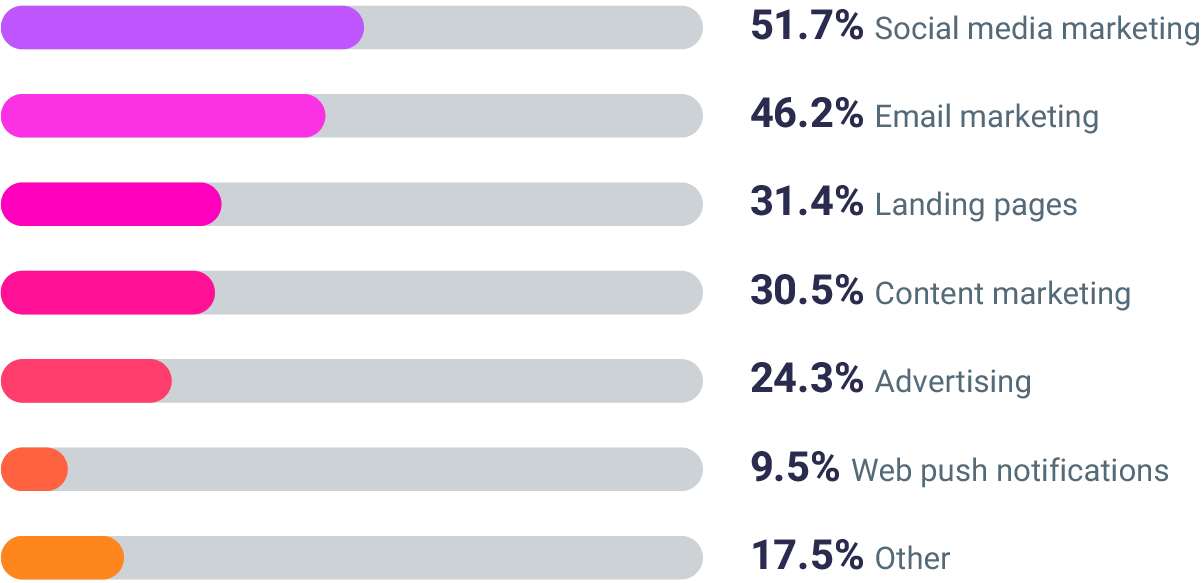

The data in this research was collected from an online survey of over 1,027 small business marketers. The survey consisted of 25 questions with conditional logic.
Support center